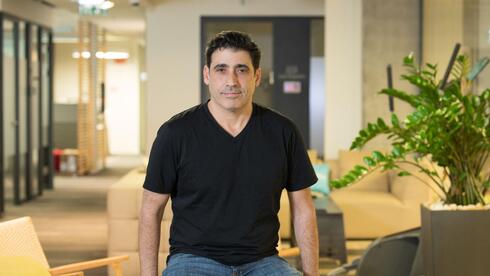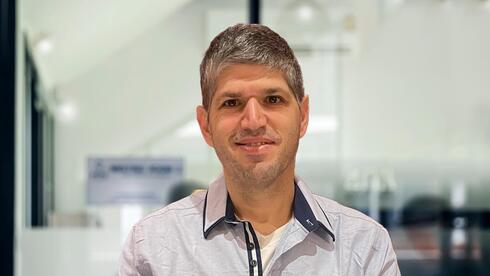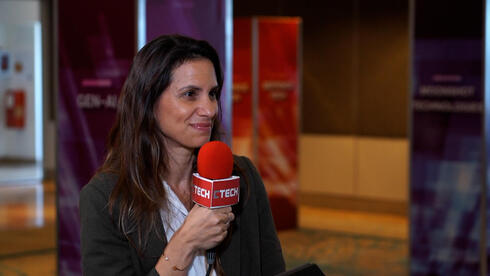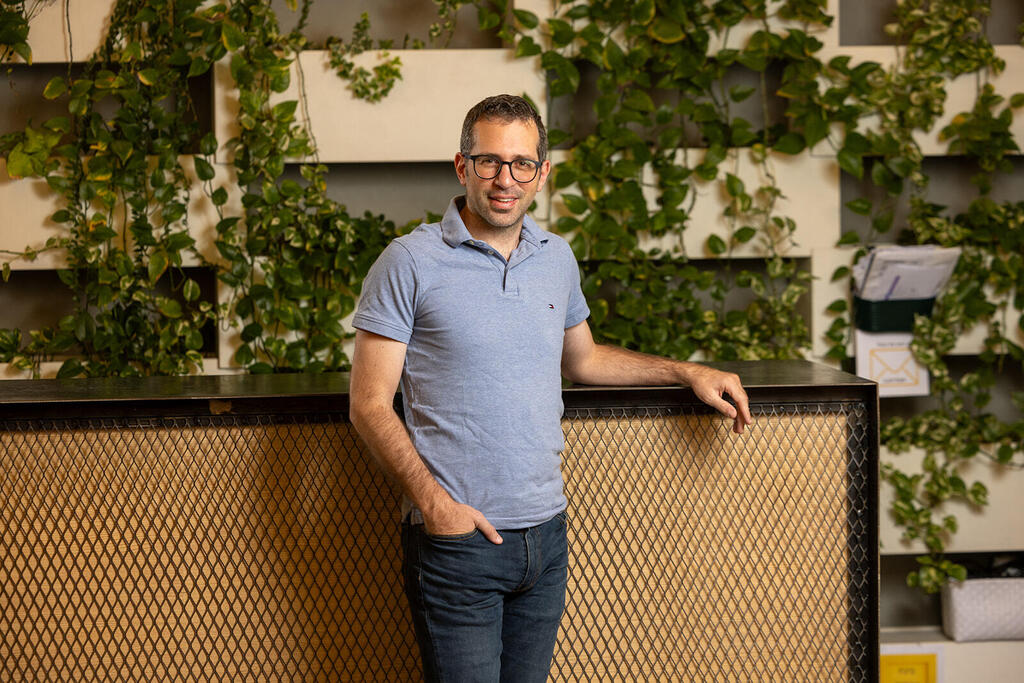
Can’t address change. New study shows how Israeli Employees really feel about their CEOs post-October 7
Can’t address change. New study shows how Israeli Employees really feel about their CEOs post-October 7
A broad-range study reveals data concerning how employees view their CEOs since October 7. Only 10% of Israeli employees believe their CEOs have the resilience and capability to address change, compared to 17% of employees in Europe. CEOs aren’t defining direction or laying out clear visions. The gap is even greater in the tech sector. Jonanthan Pietra, owner of Great Place to Work Israel says, “The data is worrying and harms business performance.”
Worrying data regarding the labor market in Israel since October 7, reveals that the vast majority of employees in Israel don’t believe their CEOs have the resilience to adapt to change brought about by the war.
The comprehensive study conducted by Great Place to Work that helps companies maximize their employees’ potential, shows that only 10% of employees in Israel, compared to 17% of employees in Europe, believe their CEOs are resilient and adaptive to change.
The gap is even broader in the tech sector where only 9% of employees in the industry in Israel, compared to 18% of employees in Europe, believe their CEOs are capable of adapting to change.
This data raises questions regarding senior Israeli CEOs’ ability to lead their organizations during this time of crisis. The study conducted in May, that polled 28 thousand employees across Europe, including a representative sample of 1,500 employees in Israel (in large and small companies in both the private and public sectors), shows signs of October 7.
“The data brings to the table employees’ perception that the Israeli CEO is struggling to deal with the uncertainty created by the war” says Pietra, owner of Great Place to Work. “The data is worrying as it reflects the experience of employees, 70% of which is related to their managers’ performance, and harms business results.”
Israeli managers, having served in the army and who are used to dealing with ongoing changes dictated by Israel’s volatile security situation, should be resilient to change. This, however, is not the case.
“I would expect employees to believe their managers were more adaptive and resilient in light of their experience dealing with security challenges, but the data indicates the very opposite” says Pietra.
Israelis cut corners, but their CEOs don’t
One may reasonably assume that the shock caused by October 7 is the root cause of employees’ sense of helplessness. This, however, isn’t the whole story. Some answers are in the creation of an organizational vision. Only 24% of Israeli employees, compared to 27% of their European counterparts, feel that their CEOs are providing them with a clear vision regarding the company’s direction.
“It's precisely in difficult situations that we’d expect a company leader to outline a path and provide security” says Pietra. He says employees’ sense of home and belonging is a contributing factor to company excellence. “An employee gets a sense of security not only from receiving a salary, but also by having someone they know they can trust in time of need.” Pietra explains that the best companies are those that, after October 7, supported their employees in various ways providing services such as psychological support; volunteering opportunities; help with the children and flexibility when it came to working hours.
He demonstrates this citing MORE Investment House. “Immediately following October 7, they acted in two ways: With regard to everything concerning to employees, they supported reservists and their families, subsidizing sessions with therapists for those who felt they needed them, held daily conversations with all employees and, most importantly, offered them total flexibility. They also imparted to their employees a sense of social responsibility affording them a sense of pride and mission by providing support to war victims and helping out at the Gaza Periphery kibbutzim.” He says, “Employees having the chance to make an impact, helped them better deal with the situation.” This did a lot for the employees. There are lots of ways to show support and security. At the end of the day, it’s expressed through small acts.”
3 View gallery


Moore Investment House employees and their children distribute rations to wounded soldiers
(courtesy: Great Place To Work)
In addition to the helplessness that we all felt after October 7, what lies behind the sense of insecurity among Israeli employees? Pietra points toward two possible further factors accounting for this sense of insecurity: Inadequate CEO-employee communication, and organizational structures that are not flexible enough.
“It looks like CEOs in Israel actually are resilient, but know neither how to communicate it not impart this sense of resilience to their employees” he says. Data supports this: Only 49% of employees in Israel, compared to 54% in Europe, said their CEOs kept them informed regarding important changes and critical issues.
Another factor accounting for inability to deal with change is the organizational structure of companies that are not flexible enough: Only 54% of employees in Israel, compared to 57% of European employees, said their organization was structurally flexible. The results are flipped when it comes to tech, with 65% of Israeli employees, compared to 63% of their European counterparts, saying their organizations were flexible.
“Startups used to working in Slack, with flat organizational structures, are better at dealing with change” says Pieta. “They can adapt themselves to changing situations, alter their teams to make up for employees called up for reserve duty, and deal better with the evacuee situation.”
Alongside these worrying figures, the study also shows positive signs regarding the Israeli labor market. Contrary to the common perception of Israelis’ fondness for corner-cutting, the study shows that Israeli CEOs act honestly and are world leaders when it comes to morals and ethics.
Forty-five percent of Israeli, compared to 32% of European, employees responded that their CEOs act ethically. “This is a surprisingly positive figure” says Pietra. “Contrary to what would likely think, CEOs in Israel act with integrity.”
Another figure supporting Israel’s “Startup Nation” image: 29% of Israeli employees believe their CEOs support innovation and creative thinking, compared to 23% of employees in Europe. This figure - of managers encouraging creative thinking here more than in Europe - reinforces Israel’s reputation as a world center for innovation”
“Employees performance improves when they feel they’re being heard”
How do you deal with many employees feeling their CEOs aren’t resilient, and are unable to address change?
Pietra suggests taking two concrete steps:
Firstly, improving communication within the organization. “It’s important to hold informal meetings facilitating the free flow of information and a sense of transparency.” For this, Pietra recommends creating frameworks in which employee’s voices can be heard, i.e. conducting internal organization surveys and personal meetings with the CEO.
Pietra cites AbbVie pharmaceuticals giant, whose Israel CEO is strict about having informal conversations with each and every company employee. Such meetings let employees clearly understand the direction the company is heading, and allows the CEO to truly understand, without mediation, what’s going on in the company. He says “When employees feel they’re being heard, they develop a greater sense of commitment to the organization, that improves business performance.”
3 View gallery


Employees of Abbvie, which is on Great Place To Work's list of the best companies to work for
(Courtesy: Great Place To Work)
Any company striving to improve its employees’ sense of security, should outline a clear plan to enforce employees’ sense of security. “It’s important to convey clear direction, even when the situation is challenging” says Pietra.
Another efficiency tip would be celebrating success within the organization, even as the cannons are firing all around. “Even during hard times, you mustn’t stop celebrating the good moments” he says. “If someone completes a special project or closes a big deal, it’s important to celebrate it. It boosts morale and serves as a reminder to employees that there are successes even during challenging times.”
Data shows that the bigger the organization, the less likely employees are to feel their CEO communicate clearly with them and the more likely they are to feel that these CEOs should make the effort to be closer to their employees in a variety of ways. “It’s obviously harder, but it’s also very important.”
“Leadership isn’t just about decision making. It’s also about the ability to communicate those decisions and give employees a sense of direction and security” says Pietra. “If Israeli CEOs were to combine their strengths and improve their weak spots, they could successfully lead their organizations even during challenging times such as we’re going through now.”
Great Place to Work is an international organization founded 30 years ago and operating across 170 countries that award global quality scores to exceptional workplaces based on methodology using 60 parameters. Best Workplaces flagship list is published annually in Fortune and People magazines. Over the last two decades, the companies that make up the list of the greatest places to work have experienced spikes in their share prices four times greater compared to the Russell 1000 Index, which includes the largest publicly traded corporations in the US, and also compared to comparable stock indices in other places around the world.














